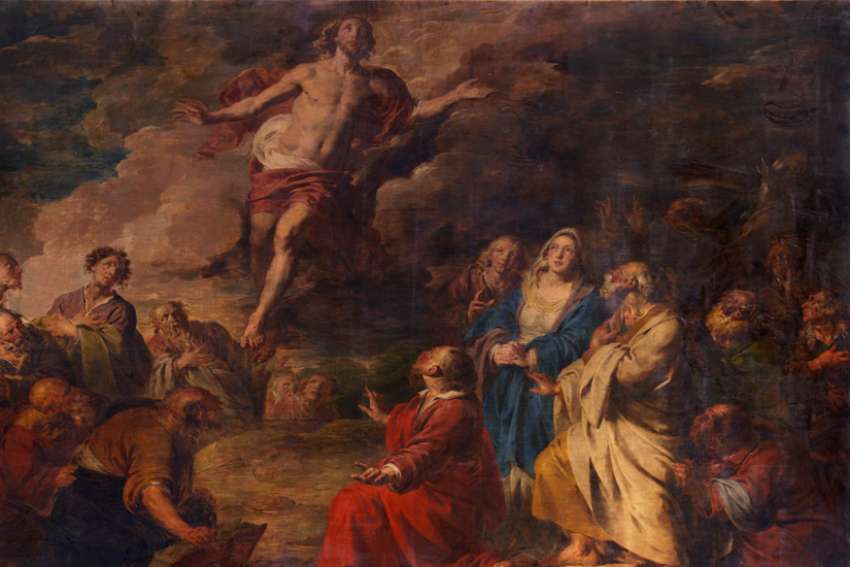An answer will not be given, and that was made abundantly clear in the Gospels (Mark 13:32) and in our reading from Acts. The disciples of Jesus tried very hard to pressure Him to reveal a date and time for the re-establishment of the kingdom of Israel. He had been teaching them for 40 days after the Resurrection, but apparently they listened without full comprehension. They wanted everything to unfold according to their own agenda.
Their question earned them a gentle but firm rebuke: It was none of their business; that was for God the Father to decide and they would not be consulted. God’s timetable and battle plan are very different.
Jesus told them repeatedly that God had work for them to do. They would be clothed with power from on high — the Holy Spirit — so they could witness to Jesus to the ends of the Earth. As they watched Jesus ascend to the heavens, two figures clothed in white — presumably angels — renewed the rebuke. They asked the followers of Jesus why they were gawking at the sky. When Jesus returned, it would be clear, and they would know it. In the meantime, there was much work to be done.
God’s instruments to accomplish the divine will are human hands, feet, hearts and minds. It is certainly a good thing to have our hearts in Heaven and to set our minds on the things above. But our feet need to be firmly anchored to the Earth. The reason we are here is very clear: to make the world a better place, to be a source of comfort and hope to others and to grow into the image of Christ. That is our life mission — our only mission — all other concerns are secondary.
The author of Ephesians prayed that the spirit of wisdom and revelation be given to the faithful. With the eyes of the heart enlightened, they would be able to see the “big picture” — the treasures of their inheritance in Christ and God’s glorious power at work everywhere.
It is this power that raised Jesus from the dead and exalted Him to the right hand of the Father, and this same power has placed everything under His feet. Although it might not seem like it at times, this is God’s world and sooner or later, God’s will for the world will be accomplished despite human interference.
The Gospel of Mark was written before all the other Gospels. Rather strangely, the original Gospel ended with verse 8 — the women ran away from the empty tomb and told no one, for they were afraid. The oldest hand-copied manuscripts of Mark end on this abrupt and puzzling note.
In later centuries, several longer endings were composed and added to bring Mark into harmony with the other three Gospels. Today’s reading is but one of them.
It is a strange read and does not really sound like Mark. Baptism is offered and brings salvation, while anyone who refuses it is condemned — today we would be far more nuanced than that. But the most bizarre statement is that believers will be able to handle deadly serpents and drink poisons without any harm. This is definitely not to be tried out for it would be both dangerous and putting God to the test.
There have been and still are those who do exactly that, often with fatal consequences. By taking it literally we miss the theological point: Jesus inaugurated the messianic age. This age was portrayed beautifully in Isaiah 2:11, 11:8 and Micah 4:3.
It would be characterized by cosmic reconciliation — traditional enemies such as the wolf and the lamb would live peacefully together. A child could play next to the adder’s den without fear. In other words, all of creation was to be brought into harmony. Nothing would be hurt or destroyed on God’s holy mountain for the Earth will be full of the knowledge of the Lord.
This is why the Gospel was good news for all of creation, not just humans. And it is the Gospel we must continue to preach by word and example.


